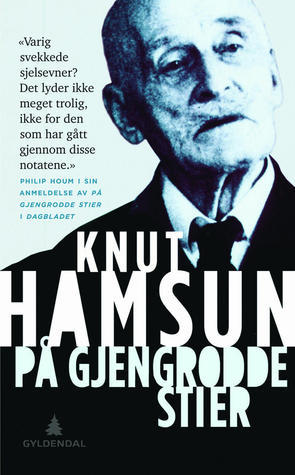What do you think?
Rate this book


144 pages, Paperback
First published January 1, 1949
"But that's not what I'm trying to fathom, but this: that so few things last. That even dynasties give way. That even what is grandiose falls someday. There is no pessimism in this thought or reflection, only a recognition of how non-stagnant, how dynamic life is. Everything is in motion, bubbling over with vitality, up and down and to all sides; when one thing collapses something else rises, looks large in the world for a moment and dies." (26-27)Having read all of Hamsun's works in English that I could get my hands on, I left On Overgrown Paths—his final work, written while he was on trial for treason—for last. There is not much more to life than is captured in this book. I need some time to sort out everything there is to say in response to it.